Filter by
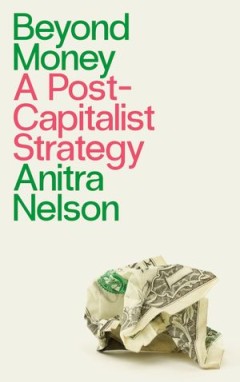
Beyond Money : A Postcapitalist Strategy
The book is very much an intervention in a debate or, better, in a series of debates. This is perhaps true of all political books, but in this case it is very explicit. ‘The desired use value of this book is to act as a key intervention in these contemporary discourses to point out that we can neither address inequalities and unsust…
- Edition
- -
- ISBN/ISSN
- 978 1 786807 80 9
- Collation
- -
- Series Title
- -
- Call Number
- 332.041 NEL b

Life After Guns: Reciprocity and Respect among Young Men in Liberia
Life After Guns explores how ex-combatants and other post-war youth negotiated a depleted and difficult social and cultural landscape in the years following Liberia's fourteen-year bloody civil war. Unlike others who study child soldiers, Abby Hardgrove's ethnography looks at both former combatants and also the youth who were not recruited to fight. She focuses on the structural constraints and…
- Edition
- -
- ISBN/ISSN
- 9780813573489
- Collation
- -
- Series Title
- -
- Call Number
- 300

Freaks of History: Two Performance Texts
Disability studies have long been the domain of medical and pedagogical academics. However, in recent years, the subject has outgrown its clinical origins. In Freaks of History, James MacDonald presents two dramatic explorations of disability within the wider themes of sexuality, gender, foreignness, and the Other. Originally directed by Martin Harvey and performed by undergraduate students at …
- Edition
- -
- ISBN/ISSN
- 9781783207367
- Collation
- -
- Series Title
- -
- Call Number
- 300
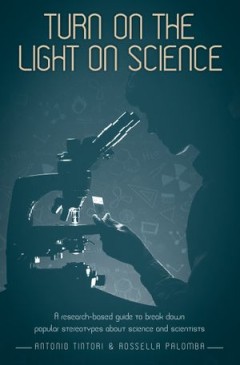
Turn on the light on science: A research-based guide to break down popular st…
Scientists deserve public recognition. The ways that they are depicted, however, are severely limited in physical and personal traits, helping to establish and enhance stereotypes under the general title of ‘scientist’. These stereotypes range from the arrogant researcher who wants to rule the world, to the lab coat wearing ‘nerdy’ genius, but all generally fall to an extreme view of an…
- Edition
- -
- ISBN/ISSN
- 9781911529057
- Collation
- -
- Series Title
- -
- Call Number
- 300 PAL t

'The Cultural Set-up of Comedy : Affective Politics in the United States Post…
How do various forms of comedy – including stand up, satire and film and television – transform contemporary invocations of nationalism and citizenship in youth cultures? And how are attitudes about gender, race and sexuality transformed through comedic performances on social media? The Cultural Set Up of Comedy seeks to answer these questions by examining comedic performances by Chris Rock…
- Edition
- -
- ISBN/ISSN
- 9781783201440
- Collation
- -
- Series Title
- -
- Call Number
- 300
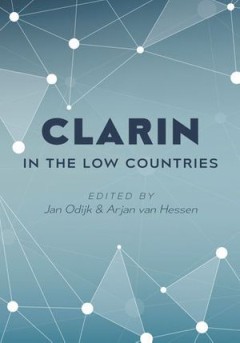
CLARIN in the Low Countries
This book describes the results of activities undertaken to construct the CLARIN research infrastructure in the Low Countries, i.e., in the Netherlands and in Flanders (the Dutch-speaking part of Belgium). CLARIN is a European research infrastructure for humanities and social science researchers that work with natural language data. This book introduces the CLARIN infrastructure, describes vari…
- Edition
- -
- ISBN/ISSN
- 9781911529255
- Collation
- -
- Series Title
- -
- Call Number
- 300 CLA c
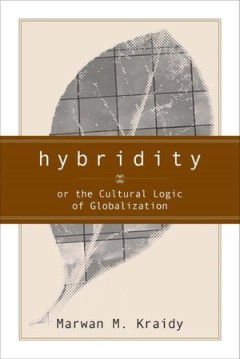
Hybridity, or the Cultural Logic of Globalization
The intermingling of people and media from different cultures is a communication-based phenomenon known as hybridity. Drawing on original research from Lebanon to Mexico and analyzing the use of the term in cultural and postcolonial studies (as well as the popular and business media), Marwan Kraidy offers readers a history of the idea and a set of prescriptions for its future use. Kraidy analyz…
- Edition
- -
- ISBN/ISSN
- 9781592131433
- Collation
- -
- Series Title
- -
- Call Number
- 300

Philo’s Perception of Women
This volume is a study of Philo's perception of women and female gender.
- Edition
- -
- ISBN/ISSN
- 9781951498535
- Collation
- -
- Series Title
- -
- Call Number
- 305.4 SLY p

Just a Dog :understanding Animal Cruelty and Ourselves
Psychiatrists define cruelty to animals as a psychological problem or personality disorder. Legally, animal cruelty is described by a list of behaviors. In Just a Dog, Arnold Arluke argues that our current constructs of animal cruelty are decontextualized—imposed without regard to the experience of the groups committing the act. Yet those who engage in animal cruelty have their own under…
- Edition
- -
- ISBN/ISSN
- -
- Collation
- -
- Series Title
- -
- Call Number
- 300
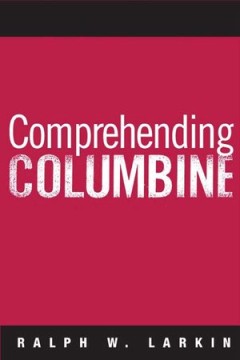
Comprehending Columbine
On April 20, 1999, two Colorado teenagers went on a shooting rampage at Columbine High School. That day, Eric Harris and Dylan Klebold killed twelve fellow students and a teacher, as well as wounding twenty-four other people, before they killed themselves. Although there have been other books written about the tragedy, this is the first serious, impartial investigation into the cultural, enviro…
- Edition
- -
- ISBN/ISSN
- 9781592134908
- Collation
- -
- Series Title
- -
- Call Number
- 300
 Computer Science, Information & General Works
Computer Science, Information & General Works  Philosophy & Psychology
Philosophy & Psychology  Religion
Religion  Social Sciences
Social Sciences  Language
Language  Pure Science
Pure Science  Applied Sciences
Applied Sciences  Art & Recreation
Art & Recreation  Literature
Literature  History & Geography
History & Geography